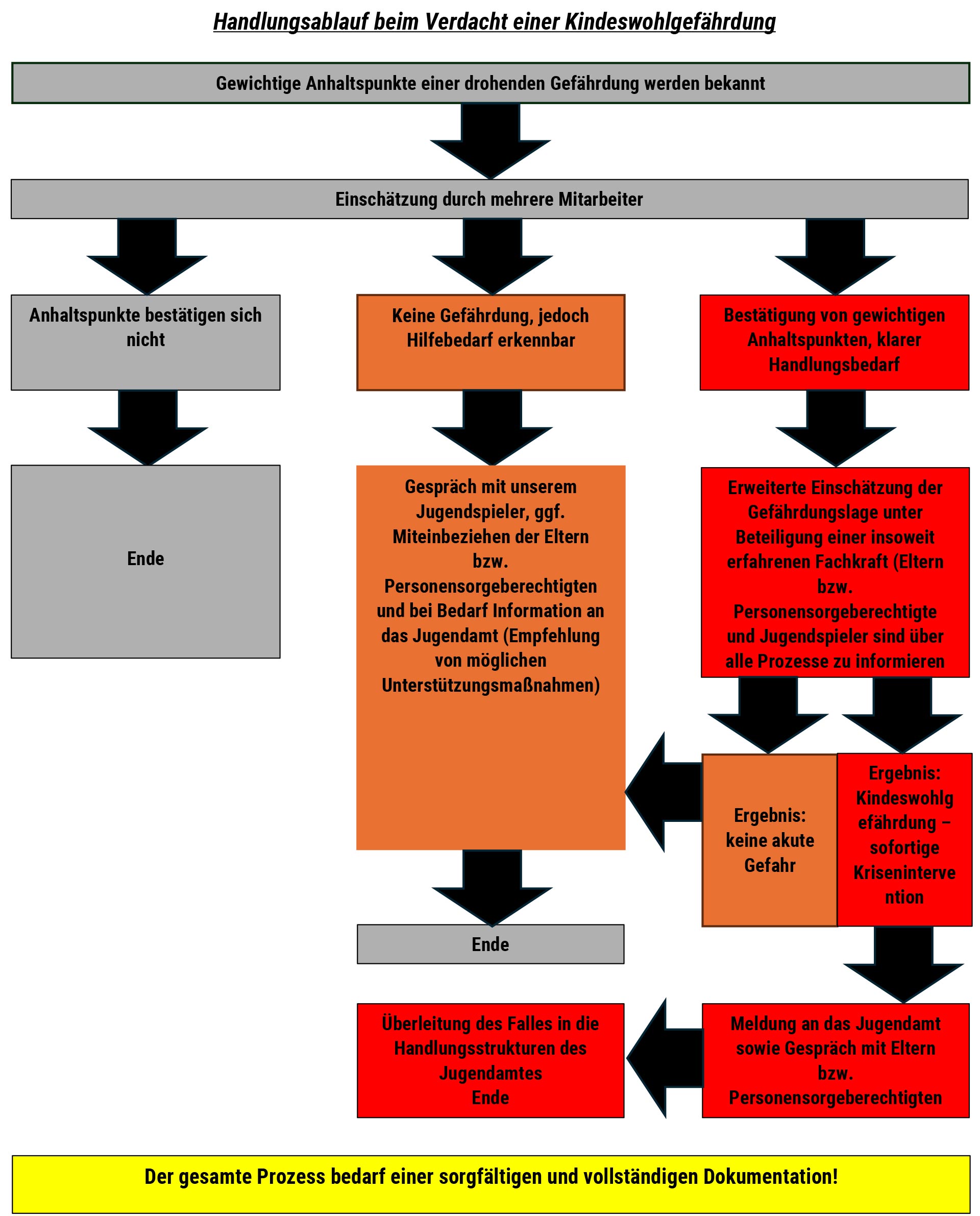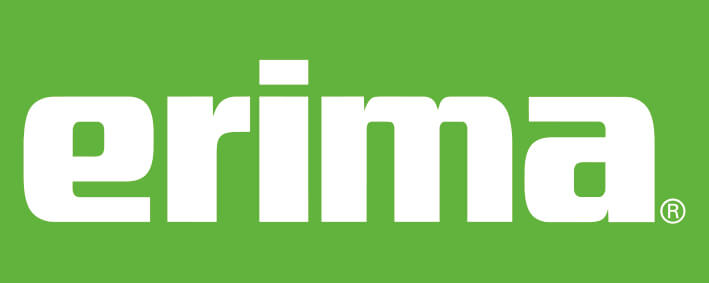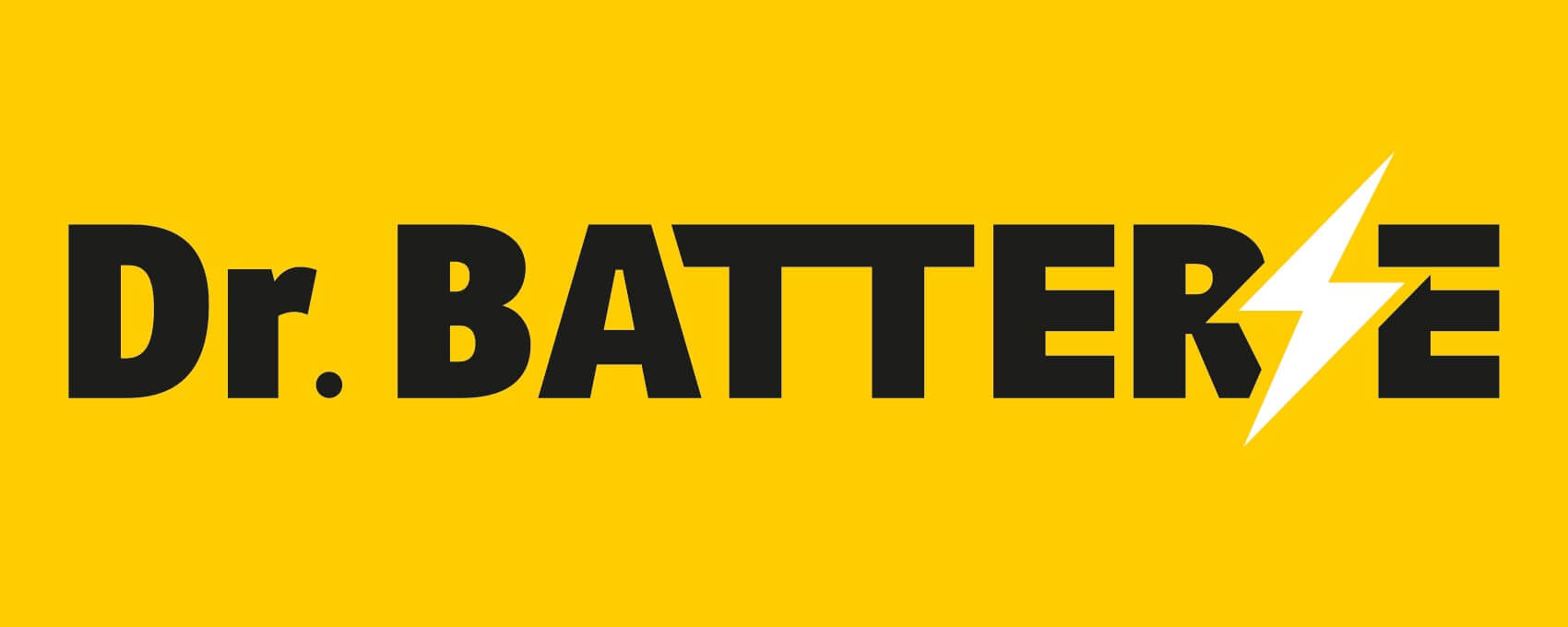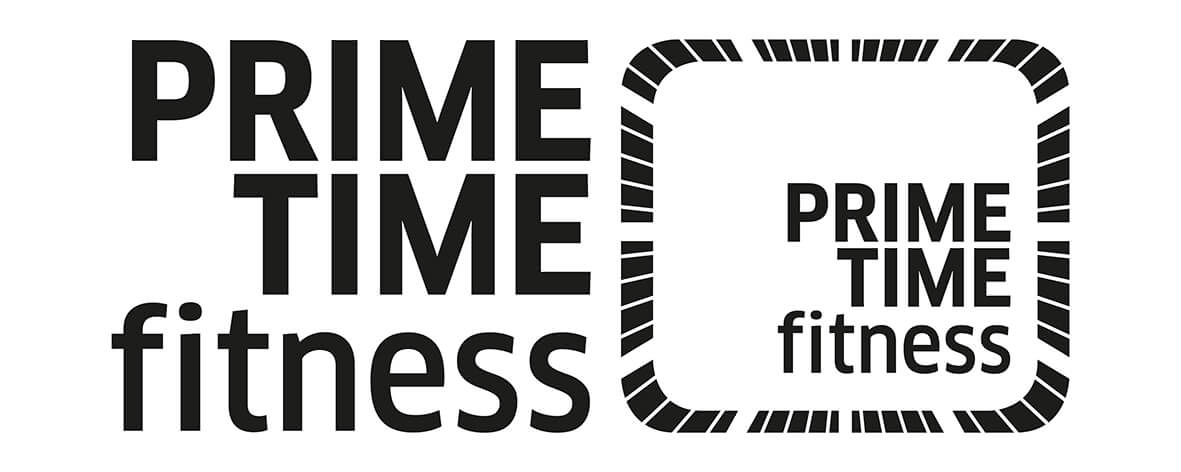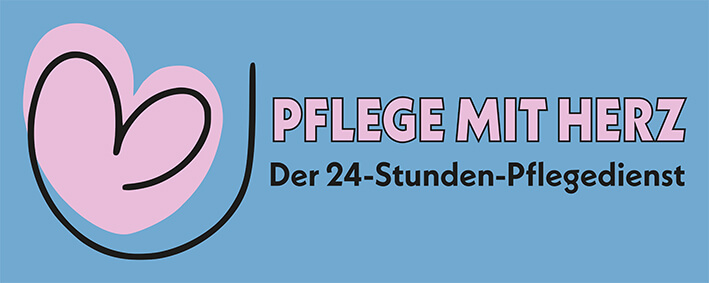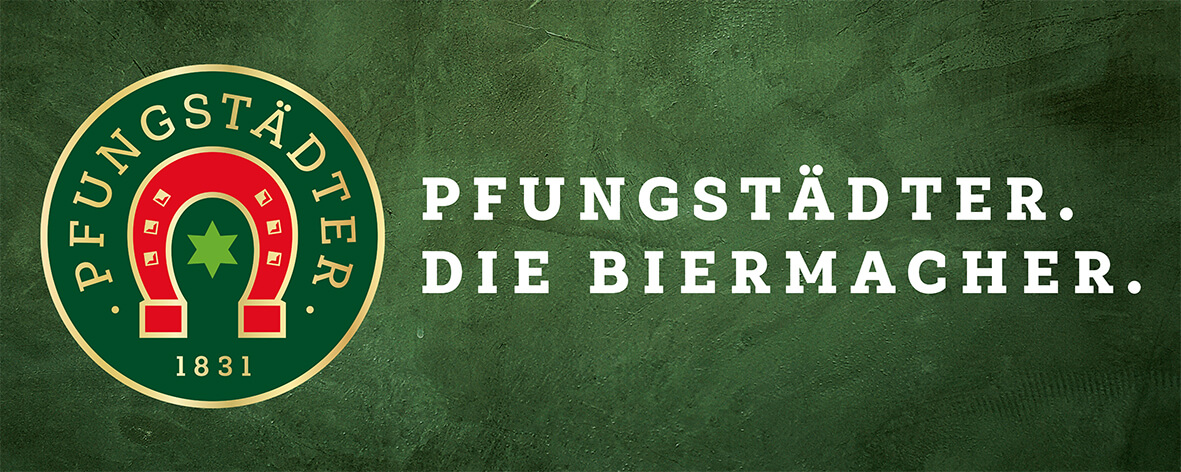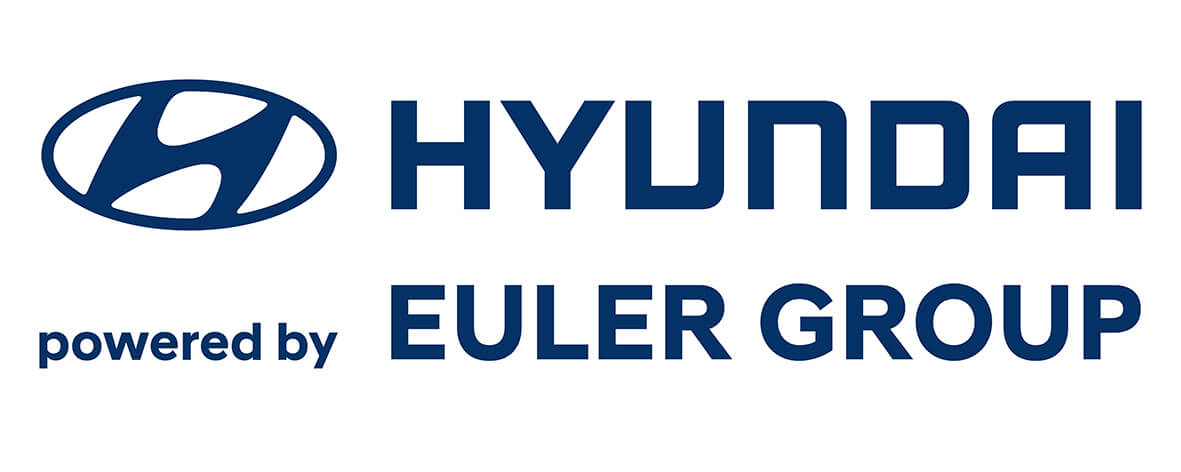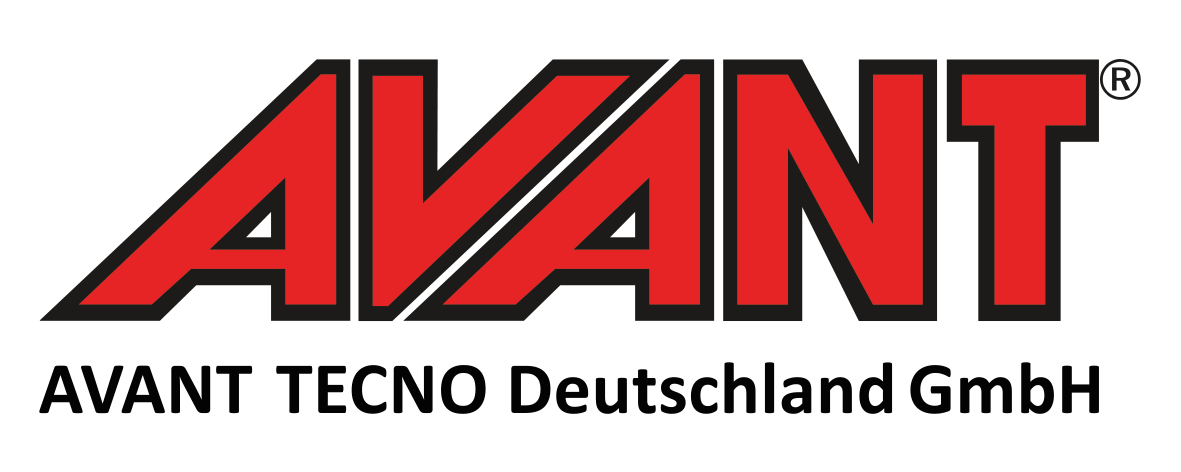Every year, our youth performance centre has around 160 young players who pursue their passion for football in our respective U-teams. The children and young people entrusted to us need special protection from physical and psychological violence.
For us, the protection of children and young people is one of our fundamental tasks and a social responsibility. We position ourselves in favour of protecting children and young people and against any form of transgression of boundaries and (sexual) violence. We want to provide children and young people with a level of protection that enables them to develop in a way that is not impaired. We also want to create an atmosphere that enables children and young people to act appropriately and seek help in emergency situations.
Our actions are based on the rights of children and young people. Our work with parents is just as relevant in this area. Transparent and constructive dialogue with parents and guardians is necessary in order to facilitate the communication of conflicts and suspicious circumstances in particular.
Prevention – clarifying the need for action
For us as a club with a youth performance centre where children and young people are entrusted to us, it is important to clarify where dangerous situations (e.g. assaults in the dressing room, toilet, shower room) can occur. We have developed preventative measures to protect the youth players entrusted to us and our staff. These are primarily intended to raise awareness of various risk situations and sensitise our youth players and employees so that they can act accordingly. Above all, a systematic prevention concept should provide safety and guidance for everyone involved.
Preventive measures for staff, parents/guardians and youth players
We advocate our above-mentioned approach at all levels and communicate it during job interviews. We do not want to give potential offenders any room for manoeuvre in advance and thus protect children and young people. Our employees are regularly educated and sensitised on the subject of child and youth protection, especially at the start of the season. Cooperation with us is required:
- an extended certificate of good conduct that is updated at regular intervals (three years) (in accordance with §72a SGB VIII)
- signing the Code of Conduct, which includes the obligation to protect children and young people from harm, danger, abuse and violence, to take action against sexist, discriminatory, racist and violent verbal and non-verbal behaviour and to respect the privacy of children and young people. The Code of Conduct is also intended to protect our staff
- regular participation in the exchange of information and sensitisation in the area of child and youth protection in the form of workshops and speaker presentations, for example
All employees at our youth performance centre are aware of the procedure in the event of a child’s welfare being at risk. The procedure can be viewed both analogue and digitally via our intranet.
First and foremost, parents and guardians are the main contact persons for our youth players and are sensitised and informed accordingly. This is done by providing general information, both internally and externally, particularly at the start of the season, on various risk situations (e.g. sexual abuse) and on how to deal with and act in individual cases. We also offer space for further questions and discussions. One of the aims here is to reduce uncertainty about individual topics in the area of child and youth protection.
As mentioned above in the section on complaints management, we want to allay the fears of our youth players and reduce their insecurities about speaking out. Through education, we want to empower them to act appropriately in emergency, dangerous and violent situations and to seek help. This also includes informing them about procedures and processes. New players are also educated at the start of each season and the players as a whole are informed of any updates.
Both internal and external contact persons are named for everyone to turn to in certain situations. All necessary information is also available to the public on the association’s own website.
Intervention measures
In order to protect the children and young people as well as our staff, immediate communication and documentation of all suspicious circumstances and specific incidents is essential. This enables the responsible authorities in the organisation to act immediately and take appropriate steps.
Intervention measures in the event of suspected assaults
In the event of suspicious circumstances concerning our staff or youth players, the management of the youth performance centre must be informed immediately. They represent the youth training centre in internal and external communications.
If the suspicion is directed against the management itself, the next higher authority will handle the communication. The parents or legal guardians and, depending on the case, the youth welfare office must also be consulted. The management levels and, if necessary, an external, professionally qualified counselling body take part in the assessment or consultation.
The management must always be informed of the results (e.g.: the suspicion is unfounded, substantiated or confirmed, and measures are initiated to avert the risk).
As part of the assessment or counselling, the employees or youth players concerned must be heard. In the hearing, the allegation is named and the employees or youth players concerned are given the opportunity to refute the allegation.
General support for personality and identity development
The youth players at our youth performance centre are in a challenging development phase on a personal level due to their age. We provide them with counselling and support during this often emotional process. Within our framework, we enable the youth players to learn about and develop their social role, their identity and their self-efficacy.
We ensure and promote fair and respectful interaction. One of our aims is to respect their individual abilities, wishes, attitudes and experiences. As employees, we are committed to treating all youth players fairly and valuing their own personalities. Trust is one of the basic elements of successful day-to-day co-operation. A stable working relationship between the youth player and the staff plays a very important role in their development.
With our basic attitude, we want to give our youth players the opportunity to freely develop their personality and shape their lives according to their own ideas. First and foremost, the teaching of standards and values is at the centre of our educational activities. We see these as a basic prerequisite for constructive co-operation and identification with our society and our club.
We not only strive for integration into social life, but also want to promote the personal responsibility of our youth players. Binding, regular, professional structures provide our youth players with a protected environment in which they can try out their independence and, if necessary, be advised of corrections. Our youth players are supported in their dealings with authorities and other institutions as required. It goes without saying that parents or legal guardians must be consulted in this regard.
Dealing with social networks
Social networks and social media have become an integral part of everyday life. The technological possibilities in this area are developing rapidly. Many people have profiles on Facebook, WhatsApp, Instagram, etc. The consumption and use of these media is particularly pronounced among young people. They exchange information with each other, find new contacts, maintain friendships, organise appointments, etc. They are also quick to send photos and videos, which can be very sensitive. This requires a conscientious and informed approach to social networks and platforms. This area is therefore just as important when working with players, staff and parents or guardians, as this also involves an exchange via various media. In dealing with this topic, the club has developed guidelines for players and employees that
- should help to promote and ensure safe and media-competent behaviour
- should offer an approach to prevent possible negative effects (e.g. insults and bullying) and possible health consequences when using social media (prevention)
- to sensitise people to the fact that the special nature of football (publicity, attention, competition) also requires an enlightened approach to and in social networks
The guide takes two different perspectives into account. Firstly*, it provides general information on the opportunities and risks associated with the everyday use of social media and secondly**, it contains conclusions on how to deal with social media within the youth academy and answers the question ‘How do we deal with social media at the youth academy’.
Knowledge & Information
| Opportunities | Risks |
|---|---|
| Knowledge freely accessible | Information may be incorrect |
| Information can be communicated and forwarded quickly | Irrelevant knowledge that can get out of hand |
Communication & Social Relations
| Opportunities | Risks |
|---|---|
| Activities in social media are always a form of communication | Communication on social media is rarely private, occasionally semi-public, but mostly public |
| Communication is possible across borders | Virtual relationships are not real relationships |
| New contacts can be found and existing ones maintained | Danger of insults, threats, harassment, bullying |
| ‘Fan care’, the opportunity to attract attention and provide insights | Social media as a ‘disruptive factor’, high costs and false stories |
Privacy & online vs. offline
| Opportunities | Risk |
|---|---|
| Privacy is a fundamental right that also applies on the Internet | Online content is stored and analysed if necessary |
| Short-term availability, ‘being online’ | Misuse of personal data as a danger |
| Associations and initiatives provide information on social media | Risk of dependency and addiction |
| Exceeding the distance by constantly being ‘online’ | |
| Pseudonyms do not lead to anonymity on the Internet. However, they also do not always reveal who the other person is |
NOTES FOR PLAYERS, TRAINERS & EMPLOYEES
Social media activities can be fun and definitely have added value. They are part of our everyday lives. General information can be shared, liked and exchanged if it is liked, important or comes up. Our association is also represented on social media. It uses its social media channels to provide information about itself and its players. The individual players can communicate with fans and provide insights into individual areas under the heading ‘fan care’. This requires a responsible approach. Personal and intimate data, various images or passwords should be available online, as this could have negative consequences on various levels.
Sensitive handling requires consideration for privacy, which must not be violated so that no one is harmed. In particular, the use and sending of images and video material without the knowledge of other people involved must be avoided. Furthermore, the network and social media are not a legal vacuum. The law must continue to be respected. Offensive or illegal content is prohibited.
| Notes for players | Notes for trainers & employees |
|---|---|
| An open and transparent approach to media towards parents, teachers and friends can protect | As a coach and employee, you also have an educational mission. This includes teaching youth players how to use social media responsibly and promoting their media skills. Coaches and employees are role models |
| At the NLZ, the focus is on sport. Virtual communication is no substitute for real communication | Social media channels are not generally irrelevant. Used in a resource-oriented manner, they offer a platform for sharing important information directly with youth players and their parents or guardians. Individual processes can be better understood and awareness of certain risks can be raised |
| Maintain a healthy distance from various criticisms, comments and posts in the media (about yourself, team-mates, opponents, referees, etc.) | You should refrain from making destructive comments, posts and negative contributions about your own players, guests, referees, parents etc.. You should not make any yourself either |
| Conversations, images and video material from the cabin are not recorded | Conversations, images and video material from the cabin are not recorded |
PARENTAL LABOUR
In order to enable our youth player to develop his personality in a positive way, both in sporting and personal terms as well as at school, we consider sensitive and empathetically supported parental work and cooperation with the respective legal guardians to be indispensable.
Taking into account a systemic and resource-orientated approach, the aim is to achieve positive effects on the development of our youth player through constructive cooperation with the parents or legal guardians.
The cooperation and exchange with the respective parents or legal guardians will take place within the framework of regular consultation hours, via correspondence and various events (this also includes training sessions and games).
We want to involve them in the development process and convince them of the enthusiasm, passion, work, prospects and family atmosphere at our club. Parents and guardians identify with FSV Frankfurt and its youth academy, get involved and perceive our coaches and employees as qualified supporters, role models and responsible individuals.
Above all, parents’ trust in the work of our staff, especially during training and matches, is very helpful in realising our idea of the “silent sideline”. This is a code of conduct for parents and guardians, and in a broader sense also for fans. This means that our qualified coaches are responsible for the sporting development and the quality of their training, so that parents or guardians are only responsible for a ‘quiet and calming sideline’ during training and matches. Especially in the lower age groups, the focus should be on having fun playing football.
This approach is implemented using a catalogue of rules for parents and legal guardians, which also applies to relatives and fans.
Cultural and political education, participation
On the way to becoming a responsible citizen in our society, we see ourselves as a companion for our youth players in their development. We consider political and cultural education to be relevant elements of this. We use various forms and methods to introduce our youth players to democratic awareness in an age-specific and needs-orientated manner.
We impart knowledge about our democratic form of society and our democratic behaviour in order to maintain it. In order for our young players to develop holistically, it is very important that they are able to understand political structures and processes, but also that they know and utilise the opportunities for participation.
Within the club, for example, rules of behaviour (in the dressing room, on the training and playing grounds, etc.) are developed together and consequences are formulated and reflected upon at the same time. Individual event opportunities are jointly agreed upon and either taken up or not, depending on the outcome. We want to create a general programme in this area that is also geared towards the needs of our youth players. The basics are agreed with our youth players right from the start.
Complaints management
As an organisation, we respect the rights of children and young people (UN Convention on the Rights of the Child 1989). In this context, we pay particular attention to our youth players. Our day-to-day pedagogical activities focus on non-violent education. We teach the youth players at our youth performance centre that they are allowed to express their opinions respectfully and objectively without fearing or experiencing negative consequences. Open and transparent communication is intended to create trust and a basic understanding for the expression of criticism. This basis, also taking into account the Children and Youth Empowerment Act (KJSG), should enable our youth players to voice complaints and promote their participation in this way.
We inform our youth players about the ways in which they can make complaints:
- Discussion with the pedagogical management
- Discussion with the responsible trainer
- Anonymous complaints mailbox
Our youth players should experience that their complaints are accepted, taken seriously and dealt with. In the long term, an atmosphere should be created in which complaints about sensitive issues can also be voiced.
Dealing with complaints
- The youth player will be heard within the scope of the above-mentioned possibilities
- The content of the complaint is documented in a standardised template (complaint recording) by the educational supervisor
- If a violation of child protection is recognised, the course of action in the event of suspected abuse or the course of action in the event of suspected child endangerment is followed (see below)
- Depending on the content of the complaint and the wishes of the youth player, the following applies:
- The youth player’s complaint is resolved directly between the youth player and the responsible coach – no intervention by the pedagogical management is necessary
- Complaint of the youth player is first submitted to the pedagogical management – coach is consulted if necessary
- Complaint of the youth player goes directly to the coach – pedagogical management is consulted if necessary – this can be done by youth players or coaches
- The further procedure with objectives for handling a complaint are worked out together and also documented in writing in a standardised template (complaint handling)
- The persons involved in a complaint agree on fixed dates to record the status of the complaint process and finalise it if necessary
- The complaints are evaluated annually using the documentation. Thematic and personal focal points should therefore also be traceable
Documentation of the complaints process
Both the content of a complaint itself and its further processing are documented in writing during the complaints process and filed in a folder that is only accessible to the pedagogical management.
External contact points on the topic of child protection & discrimination
Frankfurt am Main
Youth and social welfare office
Eschersheimer Landstraße 241-249
60320 Frankfurt am Main
Phone:
069 212 44900
E-Mail:
jugend-und-sozialamt@stadt-frankfurt.de
Frankfurt am Main
Youth and social welfare office
Counselling for special professional groups in child protection cases
Phone:
069 212 73010 or 069 212 73011 or 069 212 73012
E-Mail:
isef-beratung@stadt-frankfurt.de
Frankfurt child and youth protection hotline
0800 2010111 (free of charge)
Child Protection Association Frankfurt
Counselling centre for children, adolescents and parents
Bleichstr. 10, 60313 Frankfurt
Phone:
069 200 6299 20
E-Mail:
beratungsstelle@kinderschutzbund-frankfurt.de
Hessischer Fußball-Verband e.V.
Child protection & child welfare contact centre
Christine Kumpert
Social Responsibility Officer
Phone: 069 677 282 257
christine.kumpert@hfv-online.de
Thorsten Schenk
Social Responsibility Officer
Phone: 069 677 282 277
thorsten.schenk@hfv-online.de
Child and adolescent psychiatric service Frankfurt
Breite Gasse 28
60313 Frankfurt am Main
Phone:
069 212 38179
info.kijupsychiatrie@stadt-frankfurt.de
Office for Multicultural Affairs
Anti-discrimination clearing centre
Mainzer Landstr. 293
60326 Frankfurt
Frau Izzo
Phone:
069 212 30111
amka.antidiskriminierung@stadt-frankfurt.de
ADiBe Network Hesse
Regional officeFrankfurt
Anonymous contact point in the event of discrimination
Ludolfusstr. 2-4
60487 Frankfurt
Saliha El Bagdadi
(Anti-discrimination counselling)
Mobil: 0157 3445 4081
Mo. 10-12 a.m, Th. 14-16 p.m
kontakt@adibe-hessen.de
Nino Khachaturian
(Anti-discrimination counselling)
Phone:: 069 713 756 30
Tu. 9-11 a.m
kontakt@adibe-hessen.de
Hessen Schaut Hin
Counselling for victims of right-wing, racist and anti-Semitic violence
Phone:
069 348 770 530
kontakt@response-hessen.de
Concluding remarks
Our concept is not static, but is subject to constant evaluation. It is always important to keep an eye on the needs of all those involved and the framework conditions. This is the only way to offer up-to-date support that is orientated towards the needs and requirements of our youth players in particular. The pedagogical management has the task of communicating the concept to the employees and other people involved in the process and checking whether it is being implemented in the actions of each individual.


